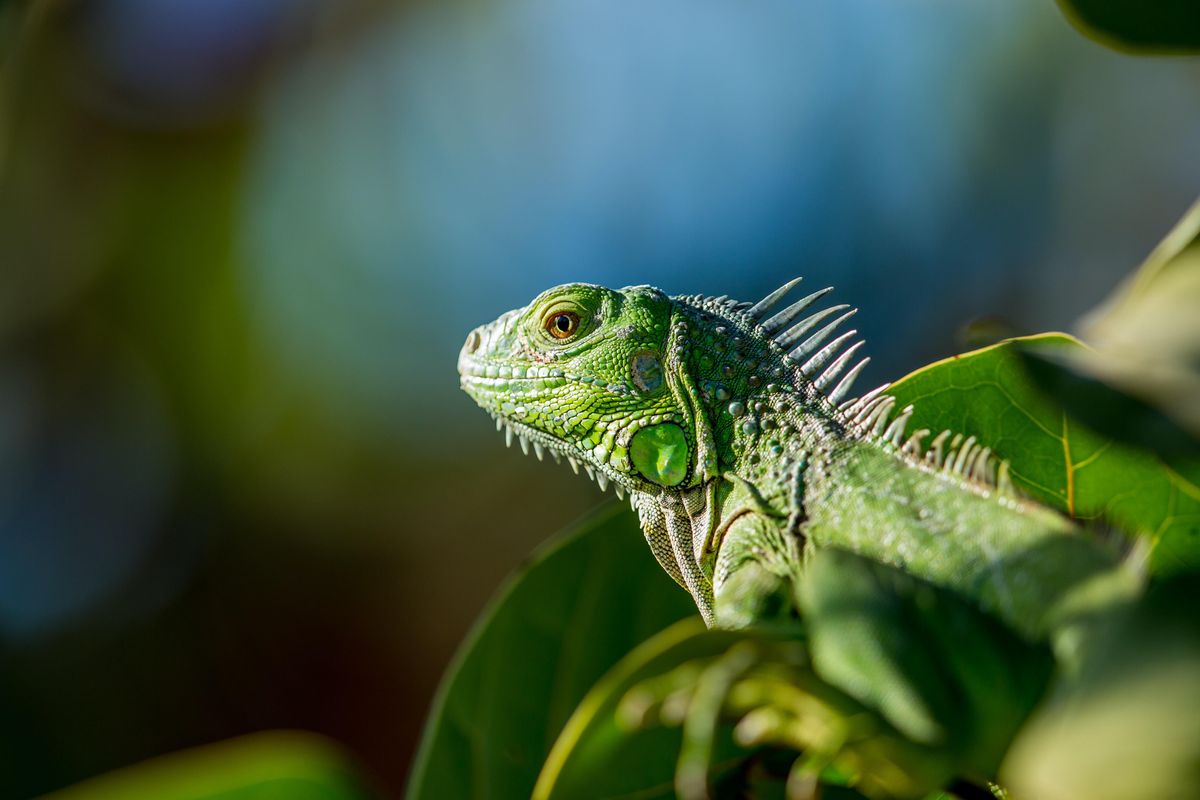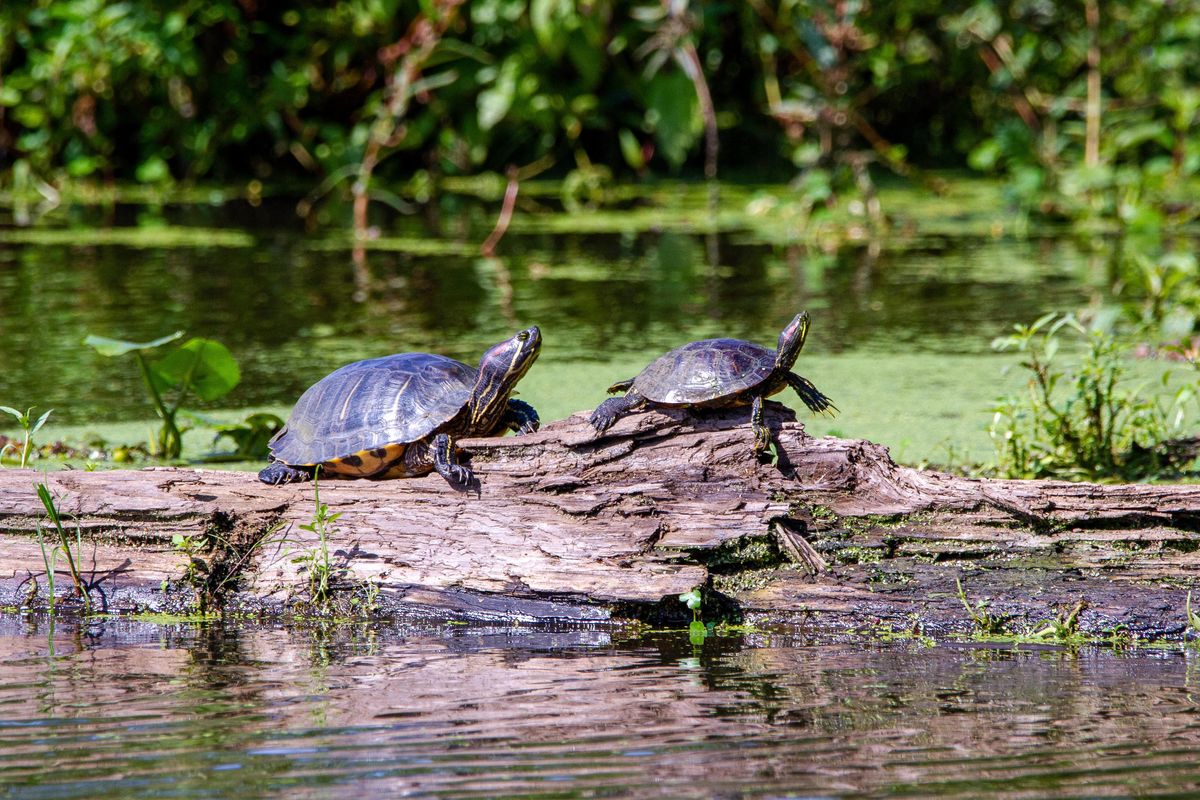We need to stop keeping reptiles as pets. It puts us and them in danger
Florida is scrambling to protect threatened gopher tortoises and burrowing owls from the green iguanas invading their burrows.
World Animal Protection has moved the world to protect animals for more than 55 years. World Animal Protection works to give animals a better life. The organization's activities include working with companies to ensure high standards of welfare for the animals in their care; working with governments and other stakeholders to prevent wild animals being cruelly traded, trapped or killed; and saving the lives of animals and the livelihoods of the people who depend on them in disaster situations.
World Animal Protection influences decision-makers to put animal welfare on the global agenda and inspires people to change animals' lives for the better. More information on World Animal Protection can be found at: http://www.worldanimalprotection.us/
By Liz Cabrera Holtz, Wildlife Campaign Manager.
Florida is scrambling to protect threatened gopher tortoises and burrowing owls from the green iguanas invading their burrows. Red-eared sliders, a turtle with a native range through the Midwest and as far east as West Virginia, are now threatening other turtle species both here and across the world.
And just a few months ago, an escaped venomous zebra snake terrified a Raleigh community and made international headlines. In every case, the wild pet trade is to blame.
Our selfish desire to keep reptiles and other wild animals as pets is jeopardizing local ecosystems and pushing multiple species to the brink of extinction. It's also endangering our health.
Reptiles are intensively bred in mills—similar to puppy mills—in the US or imported from other countries to be sold by the thousands at major pet store chains and reptile expos. The wild pet trade is now one of the biggest drivers of the spread of nonnatives and has already resulted in several hundred invasive animal species.
Often abandoned into unfamiliar ecosystems, former "pets" can introduce disease and out-compete native animals for food and dwindling habitat—leaving some native species in danger of disappearing. Invasive species cost the US an estimated $120 billion every year, and more than 40% of threatened and endangered species in the country are at risk due to invasive plants or animals.
It's also a cruelty issue. Not all abandoned wild animals will flourish. Other animals suffer painful deaths when they're killed by predators or starve.
The problem is so serious that multiple states have banned the possession or sale of certain reptiles. Florida banned the sale of tegus, green iguanas, and several other reptile species in 2021, and Massachusetts, Oregon, and Florida are among the states prohibiting red-eared sliders. But these laws are reactive. It's often too late once a species is established. We need forward-thinking policies that recognize there's no safe way to participate in the wildlife trade.
Walk into a reptile expo, where hundreds of reptiles are crammed into small plastic containers and bins at conference centers, churches, and hotels, and you'll begin to understand the scope of the crisis. The biggest reptile expos—Repticon, Cold Blooded Expos, and HERPS—take place almost every weekend somewhere in the US.

With increasing public concern about zoonotic disease and pandemics, it is important to recognize that reptile expos are a US version of a live animal market. They feature animals from all over the world who were imported or bred to be sold as pets. Reptiles at expos are often overcrowded, highly stressed, and forced into close proximity with species they'd never interact with in the wild—everything you need for novel disease outbreaks.
It's not just new diseases that we need to worry about. Reptiles are also a significant source of Salmonella infection in humans. While harmless in reptiles, Salmonella can cause severe stomach cramps and fevers in humans. It can even lead to hospitalization or death, particularly among immunocompromised persons, the elderly, and young children. That's why the Centers for Disease Control and Prevention recommends that families with children under five steer clear of reptiles and amphibians.
In 2006, a baby girl in Florida died from Salmonella after her family was given a pet turtle as a gift. Decades ago, the Food and Drug Administration banned the sale of turtles with shells smaller than four inches in length because so many children were contracting Salmonella infections from turtles. But illegal sales continue. Some of these sales are likely happening at expos.
A recent World Animal Protection investigation found evidence of tiny turtles for sale at all the major reptile expos. In two cases, the sellers actually stated that their shells were only 2.5 inches. Even worse, these expos advertise themselves as family-friendly events and usually offer free admission to children under the age of five.
Reptiles are captivating animals, and it makes sense that we're drawn to them. But our fascination with reptiles is putting them and us in danger. For their well-being and ours, they need to stay in the wild.


